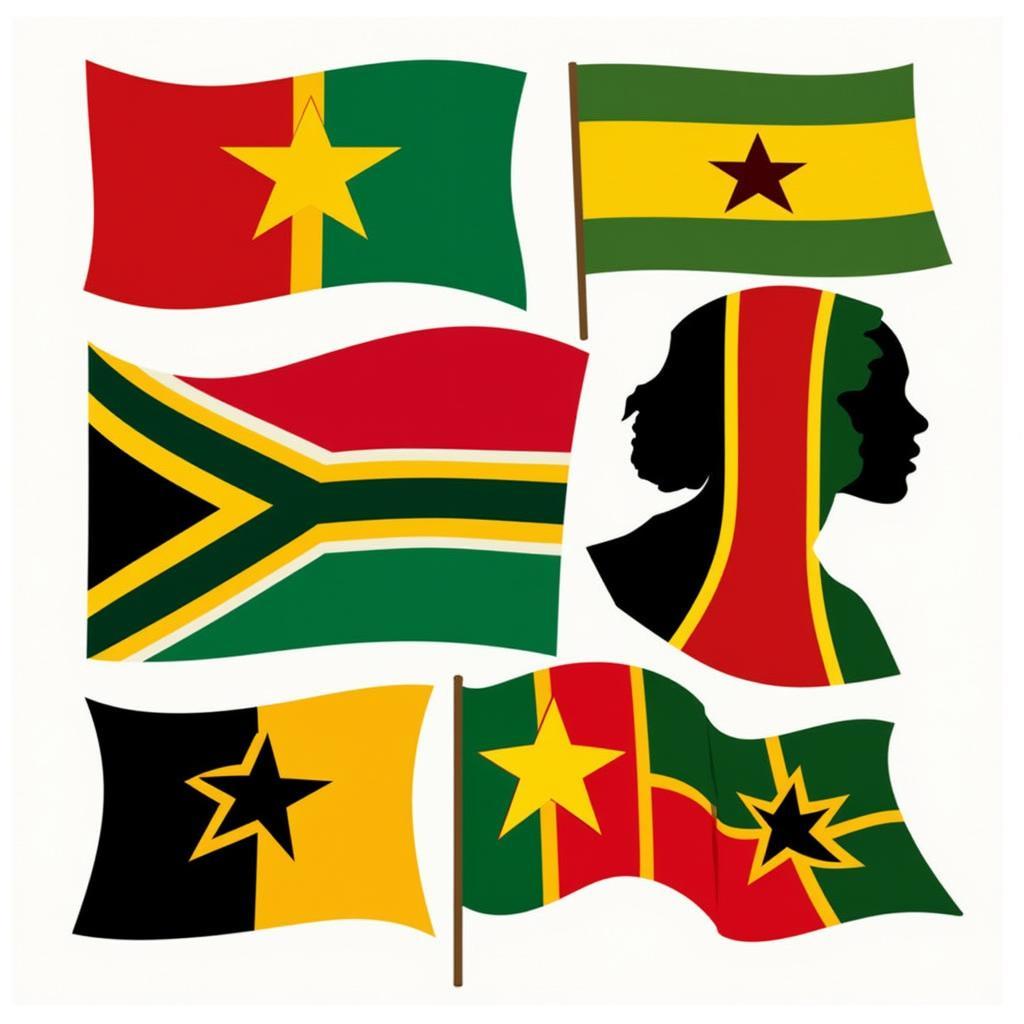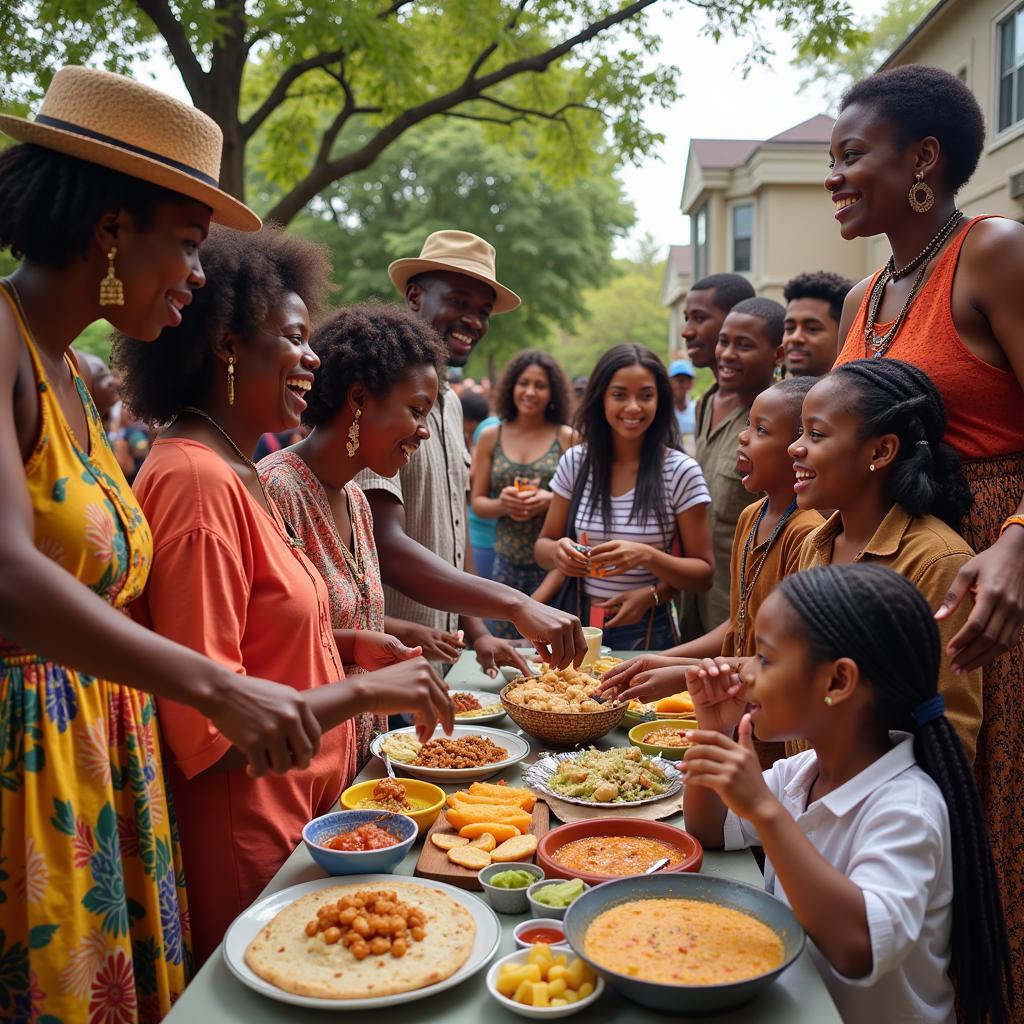A Summary of the Language of African Literature
African literature, a vibrant tapestry woven from oral traditions and written words, offers a unique glimpse into the diverse cultures, histories, and philosophies of the continent. Understanding the language of this literature—both literally and figuratively—is crucial to appreciating its richness and complexity. This Summary Of The Language Of African Literature explores the various facets that shape its distinct voice, from the multilingual landscape to the stylistic choices that reflect its diverse origins.
The languages used in African literature are as diverse as the continent itself. While colonial languages like English, French, and Portuguese have played a significant role, particularly in written literature, indigenous languages remain central to the literary landscape. Works in languages like Swahili, Yoruba, Zulu, and Amharic, among countless others, offer invaluable insights into cultural nuances and perspectives often lost in translation. The interplay between these languages, and the code-switching often employed, adds another layer of depth to the narrative. This multilingualism is a defining feature, reflecting the complex historical and cultural interactions that have shaped the continent. See our page on African Countries Peoples for more on the diversity of the continent.
The Power of Oral Tradition
Oral tradition holds a prominent place in African literature, with storytelling, poetry, and proverbs passed down through generations. This rich oral heritage deeply influences the written word, imbuing it with a distinct rhythm, cadence, and performative quality. The use of call-and-response, repetition, and other oral techniques adds a musicality and dynamism to the narrative. These stylistic choices often mirror the communal nature of African societies, where storytelling serves as a vital means of transmitting knowledge, values, and cultural identity.
Exploring Themes and Symbolism in African Literature
Thematic concerns in African literature often revolve around issues of colonialism, post-colonial identity, the struggle for independence, and the complexities of cultural hybridity. Symbolism drawn from African mythology, folklore, and traditional beliefs plays a crucial role in conveying these themes. Animals, plants, and natural elements are often imbued with symbolic meanings, adding layers of interpretation and enriching the narrative. This use of symbolism allows writers to explore complex social and political issues with nuance and depth. For a deeper look into freedom of expression in this context, visit our article on the African Charter on Human and Peoples’ Rights Freedom of Expression.
What are some common stylistic devices in African literature?
Common stylistic devices include the use of proverbs, metaphors, and similes rooted in African cultural contexts. These devices contribute to the unique aesthetic and rhetorical power of the literature.
How does colonialism impact the language of African literature?
Colonialism has had a profound and lasting impact, influencing the choice of language, the adoption of Western literary forms, and the themes explored.
Beyond Colonialism: Shaping a New Narrative
Contemporary African literature continues to evolve, embracing new forms of expression and engaging with global literary trends. Writers are experimenting with language, pushing boundaries, and crafting narratives that reflect the dynamic realities of a rapidly changing continent. This literary renaissance is characterized by a renewed focus on exploring African identities and experiences on their own terms, challenging stereotypical representations, and giving voice to marginalized communities. A great resource for further exploration is this language of african literature summary.
Professor Adebayo Olufemi, a renowned scholar of African literature, notes, “African literature is not a monolithic entity. It is a vibrant ecosystem of voices, each contributing to a rich and evolving tapestry of narratives.”
In conclusion, a summary of the language of African literature reveals a multifaceted landscape shaped by oral tradition, multilingualism, and the complex interplay of historical and cultural influences. From the ancient rhythms of storytelling to the innovative expressions of contemporary writers, African literature continues to captivate and challenge readers worldwide, offering a profound understanding of the human experience. You can also check out our article on African Cultural Day Speech for more insights into African culture.
FAQ
- What are the major languages used in African literature?
- How does oral tradition influence African literature?
- What are some common themes explored in African literature?
- How has colonialism impacted African literature?
- Who are some prominent contemporary African writers?
- What are some key stylistic features of African literature?
- Where can I find more resources on African literature?
Have more questions? Check out our page about African Journal of Emergency Medicine Submission.
Need support? Contact us 24/7:
Phone: +255768904061
Email: kaka.mag@gmail.com
Address: Mbarali DC Mawindi, Kangaga, Tanzania.

